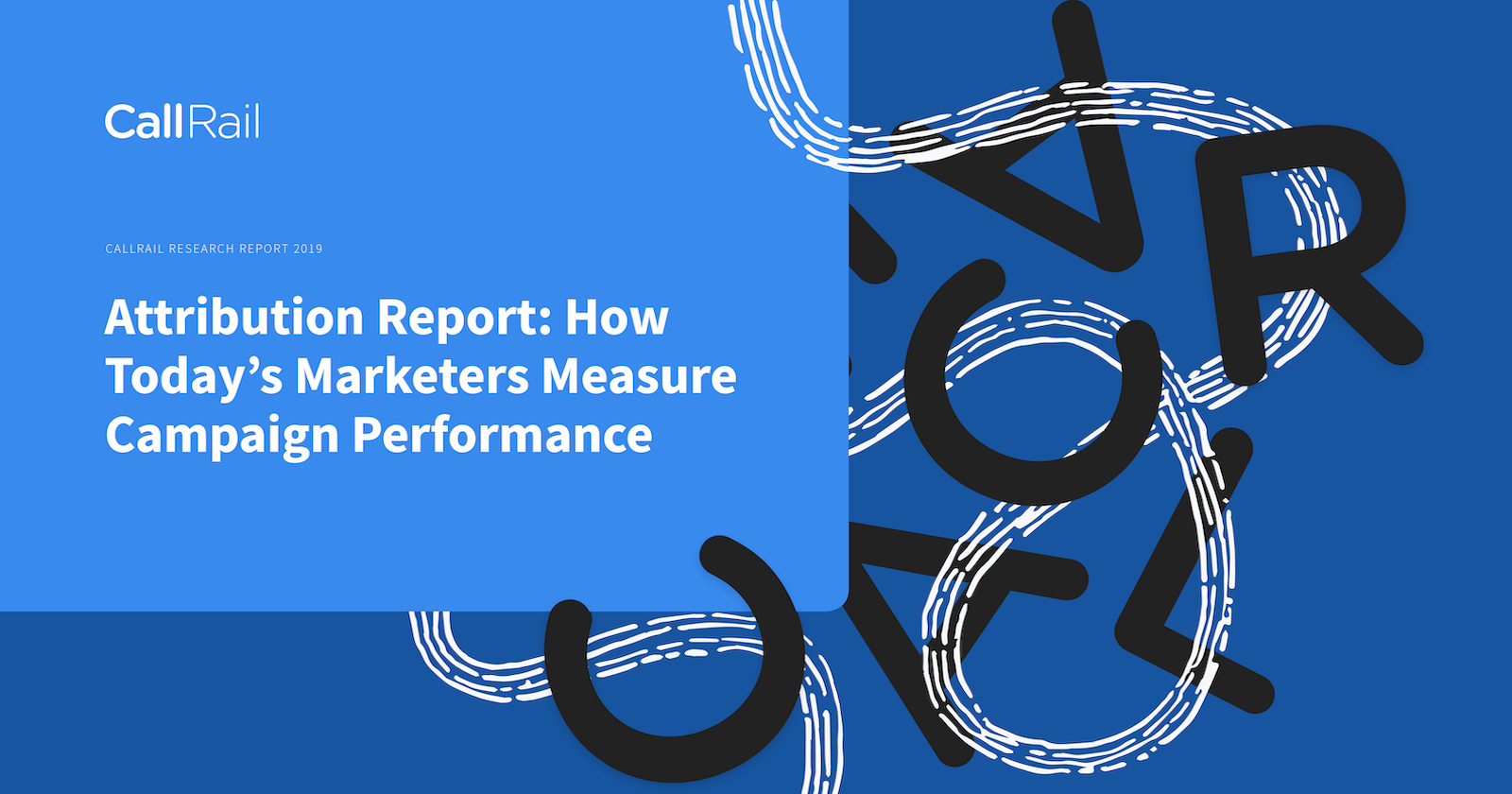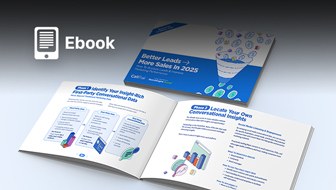This is a sponsored post written by CallRail. The opinions expressed in this article are the sponsor’s own.
If you’re ever at a cocktail party where the conversation begins to drift toward some uncomfortable, polarizing topics, here’s a trick: bring up meetings, and arouse the ire of all within earshot.
Discord: dodged.
Partygoers: unified in their loathing of meetings.
Time for another round.
And if you’re ever at a cocktail party full of marketers – the best kind of cocktail party, of course – and you want to try a different trick, just bring up reporting, and how much time you spend “pulling data” and “making pivot tables” and stuff like that.
Watch for an instant chain reaction of grumbles and gripes.
Over the last decade, a proliferation of low-barrier-of-entry digital marketing platforms and tools has today’s marketers swamped, toggling from report to report.
We’re engulfed by data.
The marketing team at CallRail has complained about reporting monotony once or twice, and we recently sought to decipher just how common our plight was.
Over the summer, we polled 300 marketers on a number of topics, including reporting and attribution, hoping to better understand key challenges facing the industry.
We learned a lot – some surprising, and some not so much – and we wrapped it all up in our first-ever Attribution Report.
Get a sneak peek of some of the insights in the report below.
‘Attribution Is Essential’ – Everyone
Our report was centered around marketing attribution.
We wanted to learn how marketers were doing it, how difficult it was, and how important it was to them.
The 300 marketers we polled included 75 who work at agencies serving multiple clients.
The cohort included those with the following job titles:
- Marketing strategist
- PPC specialist
- Demand generation manager
- Account executive
- Client relations manager
And on the question of importance, we asked that group whether they agreed with the statement: “Attribution is critical to informing and optimizing my marketing decisions.”
A whopping 96% agreed. No surprise there.
‘We’re Wasting Marketing Dollars’
– Nearly Everyone
So, just like everyone loathes meetings and reporting, every marketer in our study valued attribution, and nearly all of them also admitted that their companies were wasting at least a portion of their marketing budgets on ineffective tactics.
In fact, 81% said that was the case.
For some companies, those squandered dollars may be earmarked for legacy programs that are dying off, or at least eclipsed by more modern and measurable channels.
For others, rapid experimentation with improper attribution in place may be what’s causing doubts about the efficacy of their company’s marketing spend.
Either way, better attribution should result in greater confidence in marketing performance.
And better attribution begins with a more holistic measurement of every conversion point.
More than three-quarters (76%) of the marketers we surveyed have configured attribution for online form submissions and 71% support email attribution.
Fewer marketers say they support attribution for channels like social media conversions (64%), phone calls (57%), and online chat (56%).
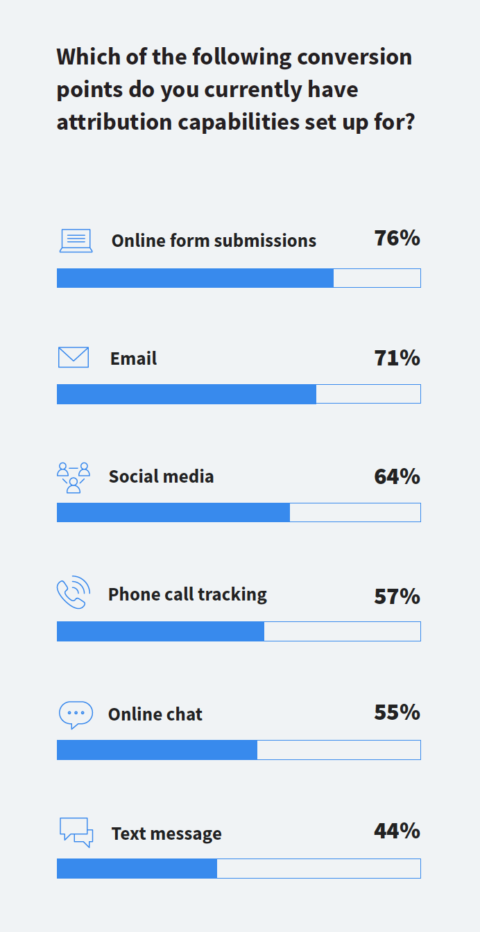
What if the new experiments or legacy programs are driving conversions that marketers aren’t measuring?
Marketers who have built holistic multi-touch attribution models are likely in the 19% minority who say their companies aren’t wasting budget on ineffective tactics.
‘We Spend Too Much Time on Reporting’ – Nearly Everyone
There it is. Too much time on reporting.
The struggle is real for the marketers we polled.
Exactly three-quarters (75%) of the respondents said they spend too much time on reporting.
Of course, the problem gets exacerbated as the number of platforms in use increases.
Marketers with five or more solutions are even more likely to say they spend too much time reporting performance (84%).
And unfortunately, as time spent on reporting increases with the number of platforms used, insight into which tactics are effective decreases.
Marketers who say they use five or more platforms are more likely to admit they have poor insight into which tactics are effective, with 46% reporting this lack of insight hurts their marketing efforts more than anything else.
Further, when it came to the question of wasted marketing budget, those using the most platforms seem to be most acquainted with the problem.
While, on average, 81% of the marketers we polled said their company was spending at least a portion of its marketing budget on ineffective tactics, 89% of marketers with five or more marketing technology tools said this was the case.
‘Poor Insight Into Which Marketing Tactics Are Effective Is Our No. 1 Pain Point’ – One-Third of Marketers
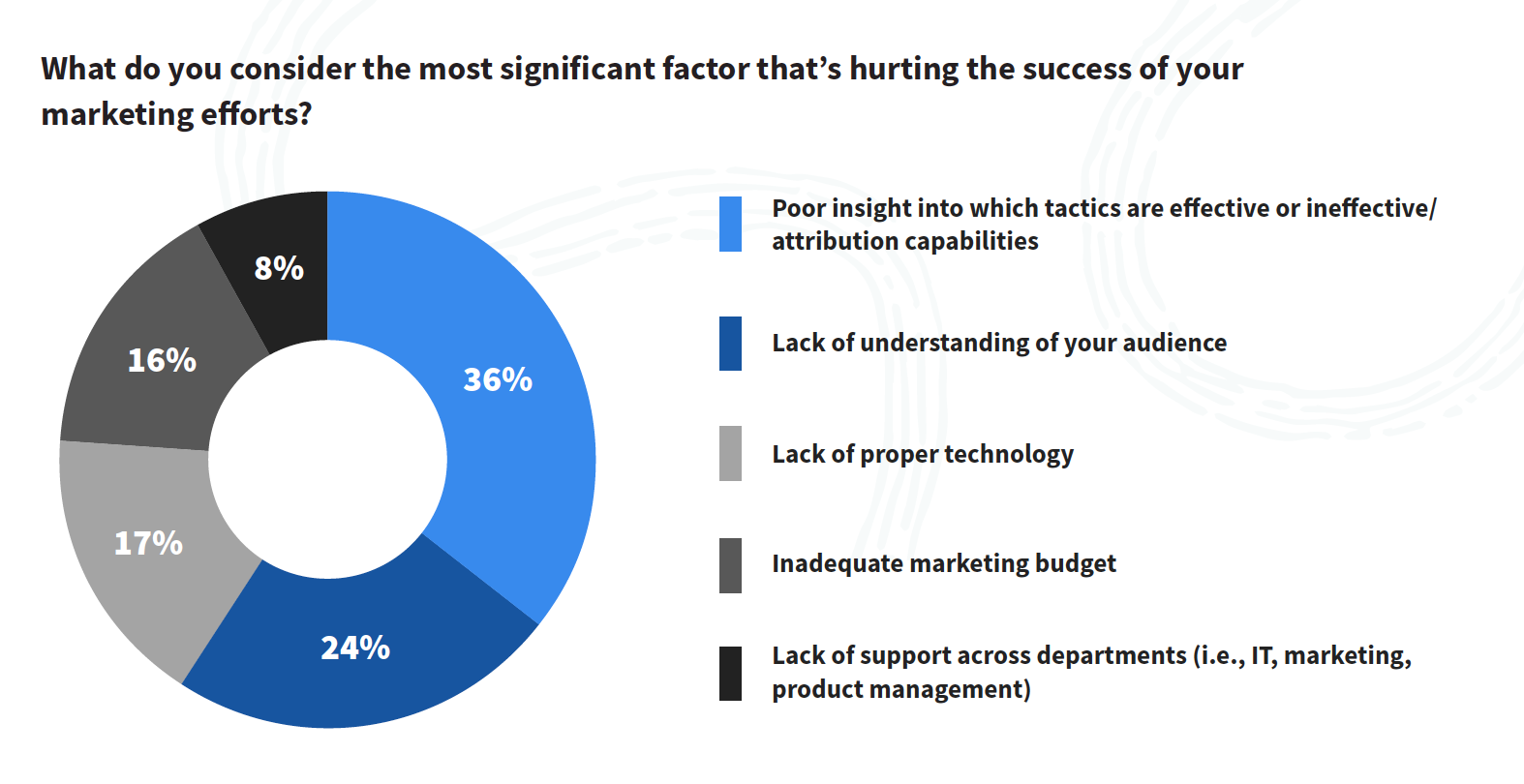
Talk to marketers at, say, a cocktail party about their challenges and you can expect to hear about how their company views marketing.
You’ll probably hear some really awesome idea they have – we are full of good ideas – but that they can’t execute on, due to budgetary or technological constraints.
But as far as pain points go, there is a singular challenge that most plagues the marketers we polled.
A lack of budget, a lack of proper technology, a lack of organizational buy-in, even a lack of understanding of their audience – these pain points are secondary to the problem of attribution.
A plurality of the marketers we polled identified “poor insight into which marketing tactics are effective” as their no. 1 pain point.
When you consider the mixture of variables that have come their way over the last decade-plus, from new advertising platforms to new content types, this should come as no surprise.
Better attribution is the only way forward.
Marketers must capture conversions at every conversion point and ensure that they can cleanly tie their conversions back to the efforts which drove them.
This will increase buy-in, beget budget, and help them to better understand their audience.
Bonus: ‘We Want to Call Businesses’
– 1,000 U.S. Consumers
We almost forgot to mention: we also polled 1,000 U.S. consumers in this study.
We wanted to get a general pulse on consumer behavior with this portion of the study, so this cohort was comprised of anyone who had researched a product online or made a purchase online within the previous six months.
Our goal was to learn how these consumers prefer to engage businesses.
One particular mode of communication jumped off the page when the data came back from our polling.
In spite of all the talk of SMS and chat-based business conversations, consumers overwhelmingly still prefer contacting businesses by phone when they’re the ones initiating communication.
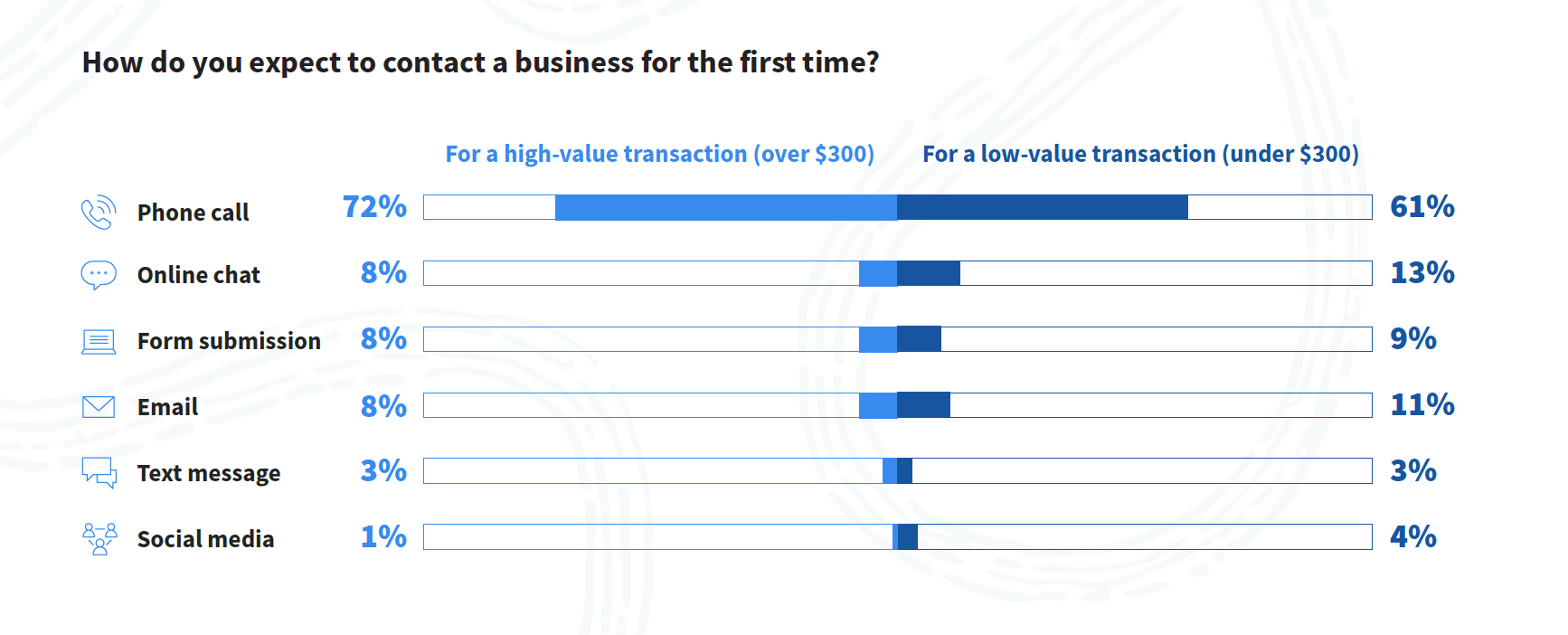
This was the preference of 72% when the conversation is about a high-value ($300+) transaction and 61% when a low-value (less than $300) transaction is being discussed.
Further, according to our survey, 91% of consumers are more likely to trust a business they can easily reach by phone.
Image Credits
Featured Image: Image by CallRail. Used with permission.
In-Post Photos: Images by CallRail. Used with permission.

